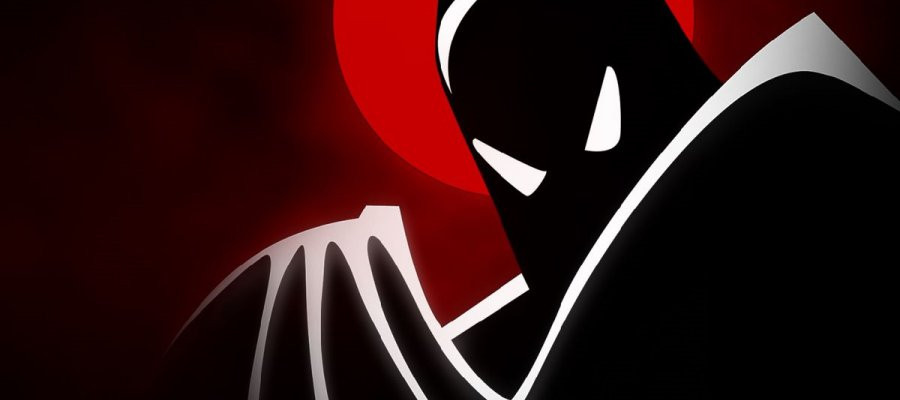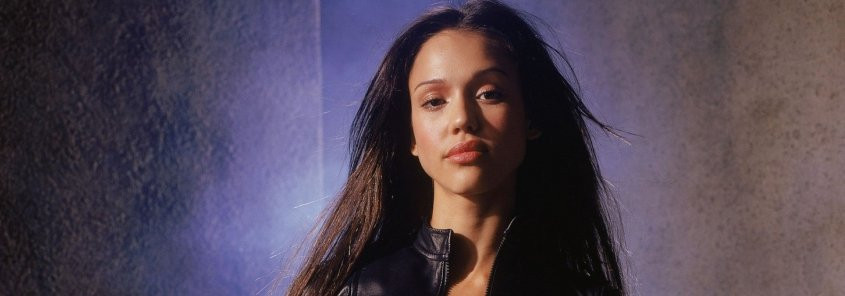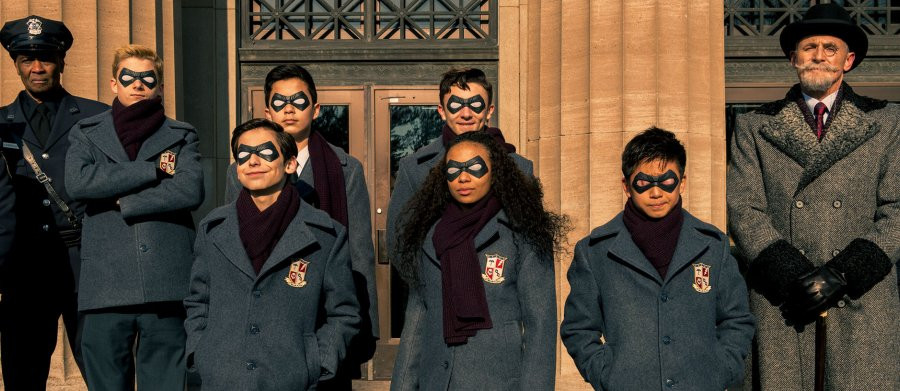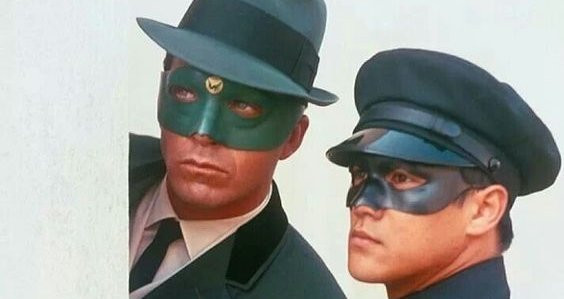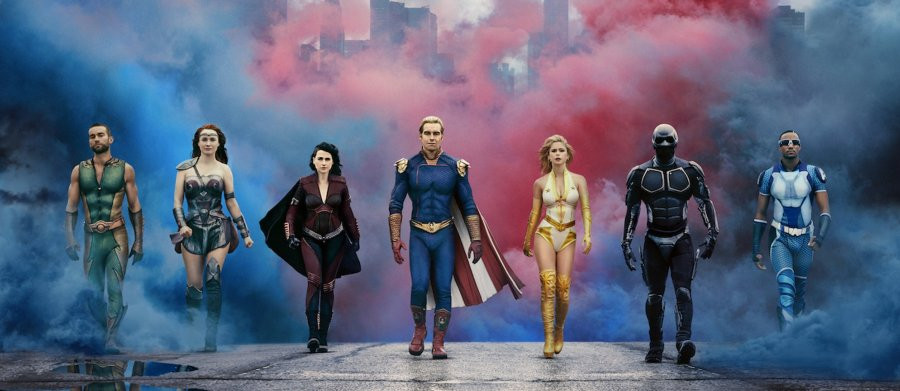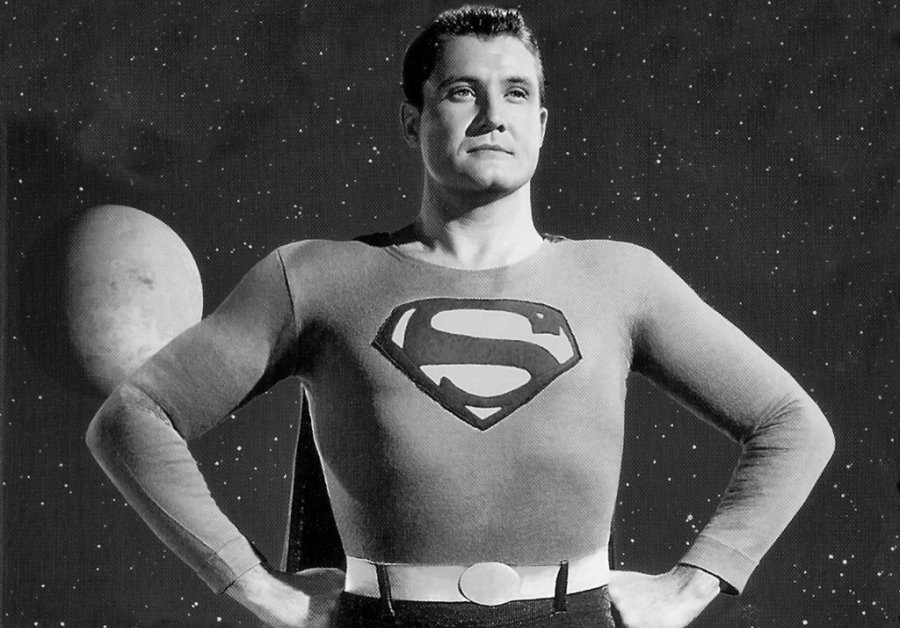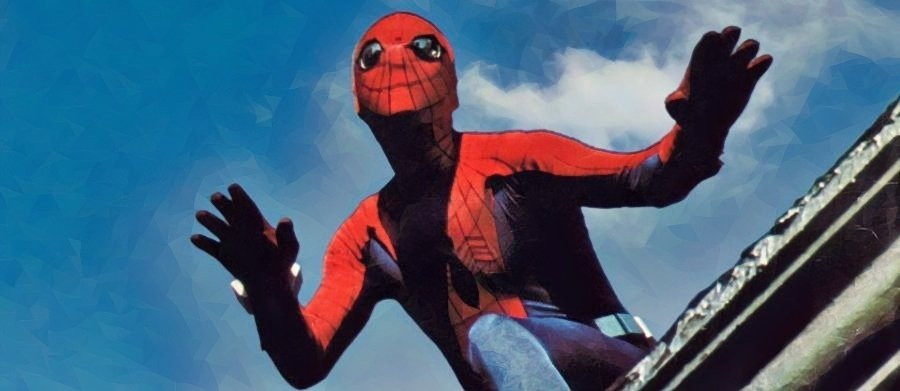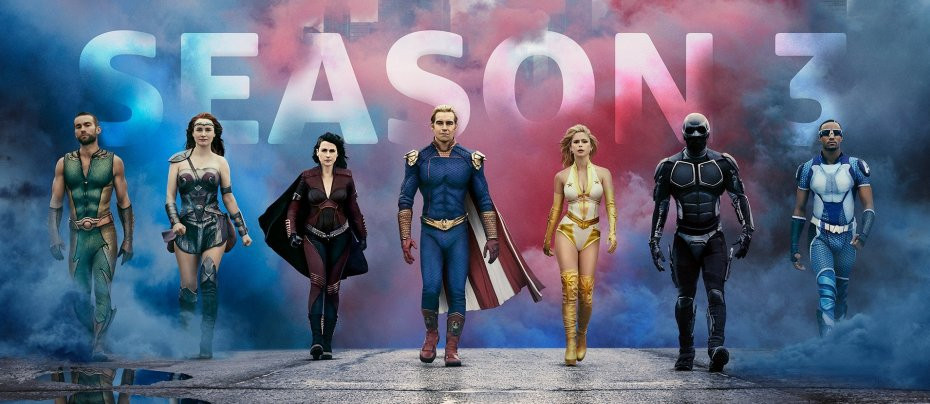
The Boys - Season 3
In the first few minutes of the opening episode of the season something occurs that is guaranteed to make every male viewer wince
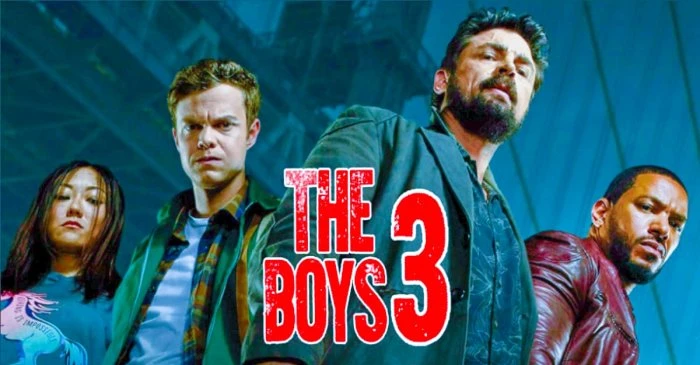
Review of The Boys by John Winterson Richards
First of all, here is our own disclaimer. This overview of Season Three of The Boys tries to go easy on the spoilers but is not guaranteed to be free of them. You can probably work some things out, so you are best off watching the season first ...if you are into this sort of thing.
This brings us to a second disclaimer, from The Boys itself. The most notorious episode of Season Three - and the most popular on IMDb as it happens - was preceded by a serious looking notice: "Some scenes may not be suitable for some, really most, let's be honest all viewers."
They are not joking. Well, they are, but they are also telling the truth. As usual with The Boys, there are so many levels of irony it is impossible tell the difference any more. The disclaimer continues: "Rest assured that any consensual relationships depicted, be they human, animal, Superhero, or other, aren't real, harmed no one, and in fact cost a hilariously large amount in visual effects."
A satirical show is now satirising itself. There has always been a self-referential aspect to it, not least the "trivia" notes on Amazon Prime some of which read as if they were advertisements written by the rapacious Vought International corporation. Is Amazon really Vought?
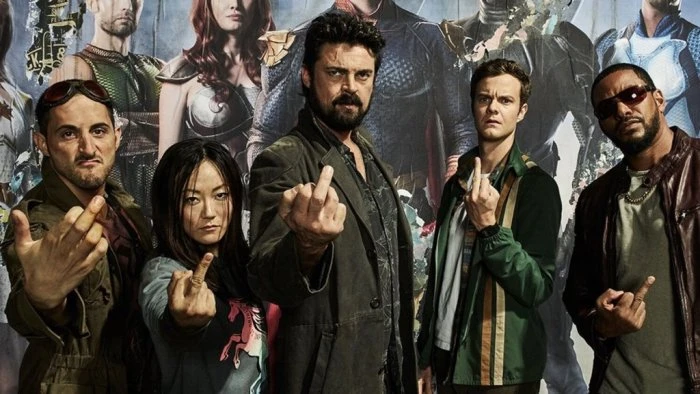
The point is that, even if we think they are joking, we have been warned - and the warning is justified. The Boys has always been an "adult" show - "adult" being defined in this case, as so often in the entertainment media now, as aimed mainly at teenaged boys - in terms of fairly graphic depictions of sex and violence, and a vocabulary that would probably shock a reunion of Merchant Navy veterans in a Hamburg bordello.
The episode in question certainly "pushes the boundaries" - and those boundaries have already been well and truly pushed by that stage. In the first few minutes of the opening episode of the season something occurs that is guaranteed to make every male viewer wince. To be fair, this is not entirely gratuitous. The whole point is to illustrate that Superheroes, or "Supes," live in an atmosphere of irresponsible self-indulgence and it is a point well made. Nevertheless, there are some images a man might well wish he could get out of his head...
That said, those first few minutes also remind us of why The Boys is one of the cleverest shows currently in production. We see part of ‘Dawn of the Seven,' the corny "film within the show" that we saw being made in the last season and it is in itself a perceptive satire of the whole "superhero" cinematic genre. It is particularly amusing to note the casting and script changes made necessary by the events of Season Two. There are knowing references to a "Director's Cut" and fears that the film would go straight to "Vought Plus" (because in the end, this being an Amazon show, Vought is less Amazon than Amazon's streaming rival Disney).
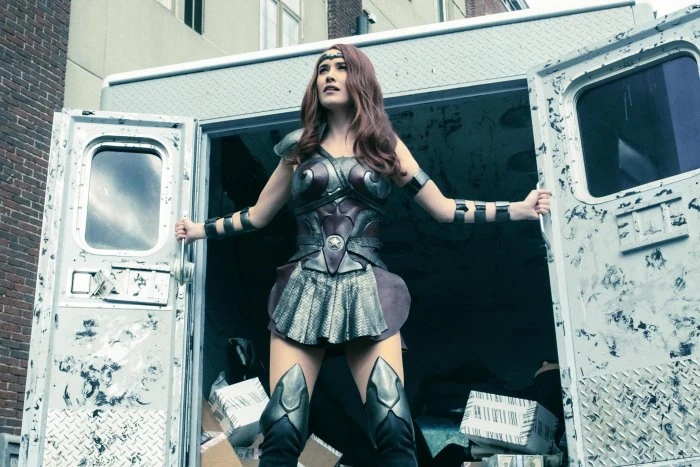
The satire reaches even greater heights soon after. The show had already been quite daring in previous seasons in ridiculing the prevailing fashion for multinational corporations to co-opt and exploit left wing causes out of the purely capitalist desire to make even more money. This becomes even more crass when we visit Vought's latest theme park attraction, "Brave Maeve's Inclusive Kingdom" - the sexually omnivorous Queen Maeve (Dominique McElligott) having been unwillingly rebranded as a "proud lesbian" for marketing purposes. Concession stalls include "Woke Wok," "LGBTurkey" and "BLM BLT." There are rainbow flags everywhere .
Yet there is a subtle difference. While the show is happy to mock the cynical corporate exploitation of such causes, it holds off from anything that might be mistaken for satirising the causes themselves. At the same time it does not hesitate to attack the other side of the political spectrum, its supporters, and their causes directly and somewhat heavy handedly. A fairly clumsy parallel is drawn between fans of the psychotic Homelander (Antony Starr) and a cartoon version of Trump supporters. This is only to be expected: after all the Executive Producers include the leftist comedy actor Seth Rogen - who also appears in a particularly cringeworthy cameo. However, one of the things that gave the first season such a broad appeal was its willingness to hit targets of opportunity on all sides. That seems to be gone now. It is another illustration of how much more entrenched the "Culture Wars" have become in just three years.
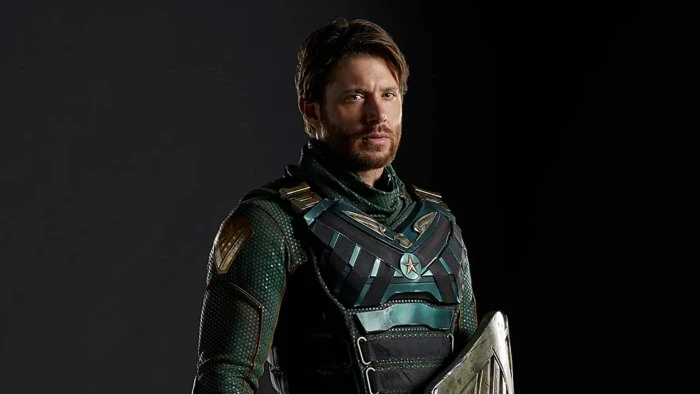
The non-political satire remains of a high standard, especially the satire of the "superhero" genre itself. A new factor emerges in the form of Soldier Boy (Jensen Ackles), an analogue of Captain America. This opens up the fertile territory of the exploitation of previous generations of "superheroes" by the Marvel Cinematic and DC Extended Universes. There also appear to be frequent references to Watchmen, itself a satire of historical "superheroes," so the show becomes a satire of a satire. Soldier Boy's older generation take on modern life sometimes looks as if it might be interesting but the character is made deliberately unsympathetic which rather negates the value of everything he says, a missed opportunity.
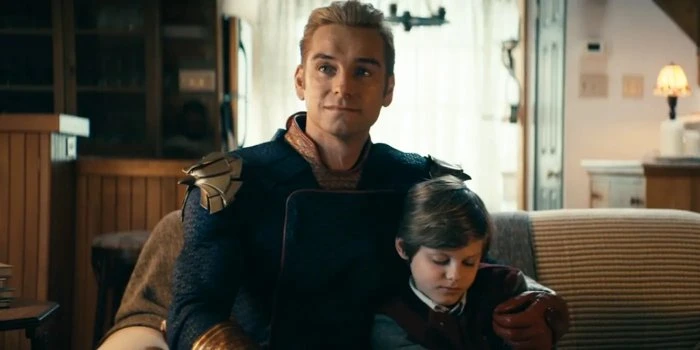
Otherwise Season Three benefits from a lot of solid character and relationship development. The most interesting and important is the fragile triangle formed by Homelander, Butcher (Karl Urban), and Ryan (Cameron Crovetti), Homelander's son by Butcher's late wife. Although Homelander and Butcher are, by any standards, truly reprehensible human beings, they are both at their best with Ryan and we understand why he is so uncertain about them. Crovetti balances Ryan's fear of both men with his longing for a real father very effectively. Ironically, it is a rare act of self sacrifice on Butcher's part that offers Homelander the opportunity to acquire what, deep down, he craves more than anything - someone to love who might even love him back.
We actually begin to feel moments of sympathy for Homelander just as he is committing some of his worst crimes. We also find out more about how Butcher became what he is.
It is good to see Hughie (Jack Quaid) grown up a bit, with a responsible Government job and, amazingly, the respect of his colleagues. However, beneath the façade, his exaggerated sense of his own inadequacies remains, especially when he compares himself with his Supe girlfriend, Starlight (Erin Moriarty). This leads him to some very bad decisions but eventually to an important realisation about his father's apparent weakness.
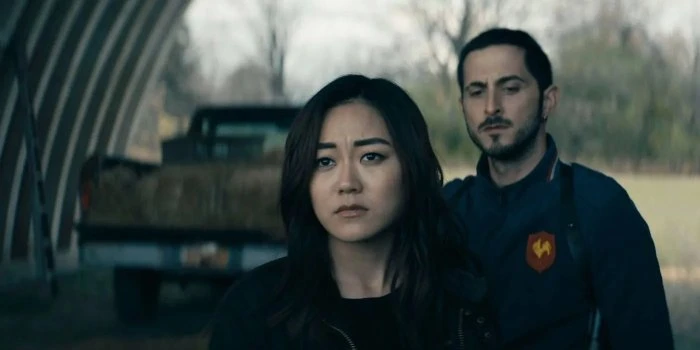
Frenchie (Tomer Capone) and Kimiko (Karen Fukuhara) are an increasingly delightful couple, so delightful that we are inclined to ignore the fact that some of the things being revealed about Frenchie's past are truly horrible. Mother's Milk (Laz Alonso), by contrast, is shown to be a reluctant avenger and there is a credible psychological explanation for his obsessive compulsive disorder.
On the other side of the fence, we finally find out more about the enigmatic Black Noir (Nathan Mitchell) - with the help of some charming Disney style animated animals? Is it significant that the controversial Song of the South seems to have been a particular influence on the animation style? Are we even allowed to mention that now?
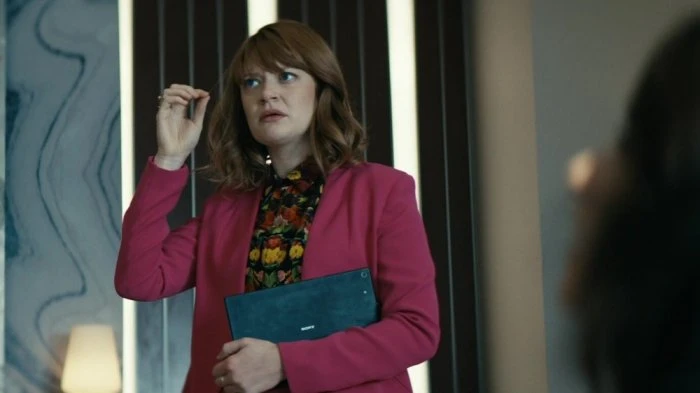
The main story arc of the season is Homelander's growing awareness of his own power - not his physical power but his social and political power. He bullies A-Train (Jessie T Usher), the Deep, (Chace Crawford), and their hapless handler Ashley (Colby Minifie) mercilessly, but they also benefit as he begins to assert his authority within Vought. All three have moments when they look as if they want to make other choices but in the end ambition gets the better of them all. The Deep's sincere desire to protect his Oceanic brethren leads once again to what is best described as hilarious tragedy. If it gets too harrowing, just remember that the appealing Timothy the Octopus is CGI, just like the dolphin in Season One and the whale in Season Two.
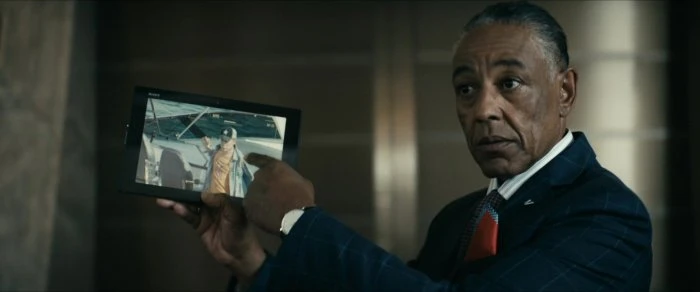
The ease with which Stan Edgar is brushed aside by Homelander strikes a false note. This is a common problem with Giancarlo Esposito characters: he has had enormous success over the last decade or so playing antagonistic leader types whose dramatic function is to be defeated by other characters - but he always makes them so credibly competent that their defeat seems unlikely and rather forced. One suspects that Edgar will be back, but then it still hard to accept Gus Fring will not. Anyway, at least his - possibly temporary - absence gives Homelander and his reluctant acolytes the opportunity to find out what it takes to wield real power and discover that none of them have it. Seeing poor Ashley swim even further out of her depth, knowing as much and still making the deliberate choice to ignore it, is both tragic and comic at the same time.
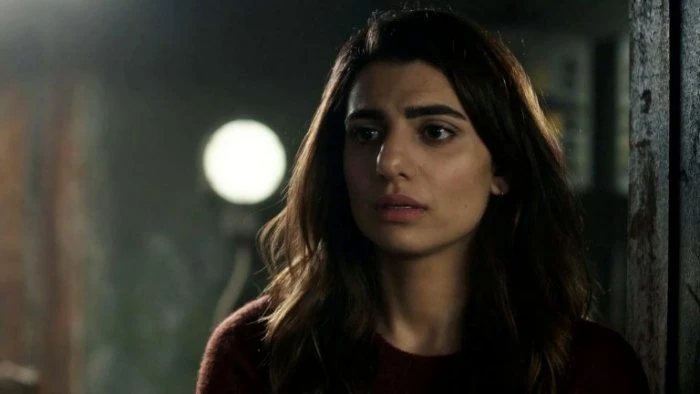
Congressman Victoria Neuman (Claudia Doumit), who was set up as the main antagonist at the end of the last season, is also rather sidelined for much of this one only to be set up as a major threat again at the end. Incidentally, without wishing to be picky, can a sitting Member of Congress direct a Federal Agency at the same time? Separation of the Powers, anyone?
The ending is not entirely satisfactory. It is good to put the death of established characters on the line, but one was rather thrown away while another was given a properly dramatic exit only to have it revealed later as an unconvincing fake death. Given the politics of the situation, it was predictable but still rather dishonoured the character and their sacrifice. Overall, Season Three exhibits all the strengths that made Season One stand out from anything else that was happening at the time, but it has to said that it is by definition not as original as it once was and it needs to learn to rely less on shock value if it is to remain at the cutting edge of satire.
Published on July 13th, 2022. Written by John Winterson Richards for Television Heaven.


